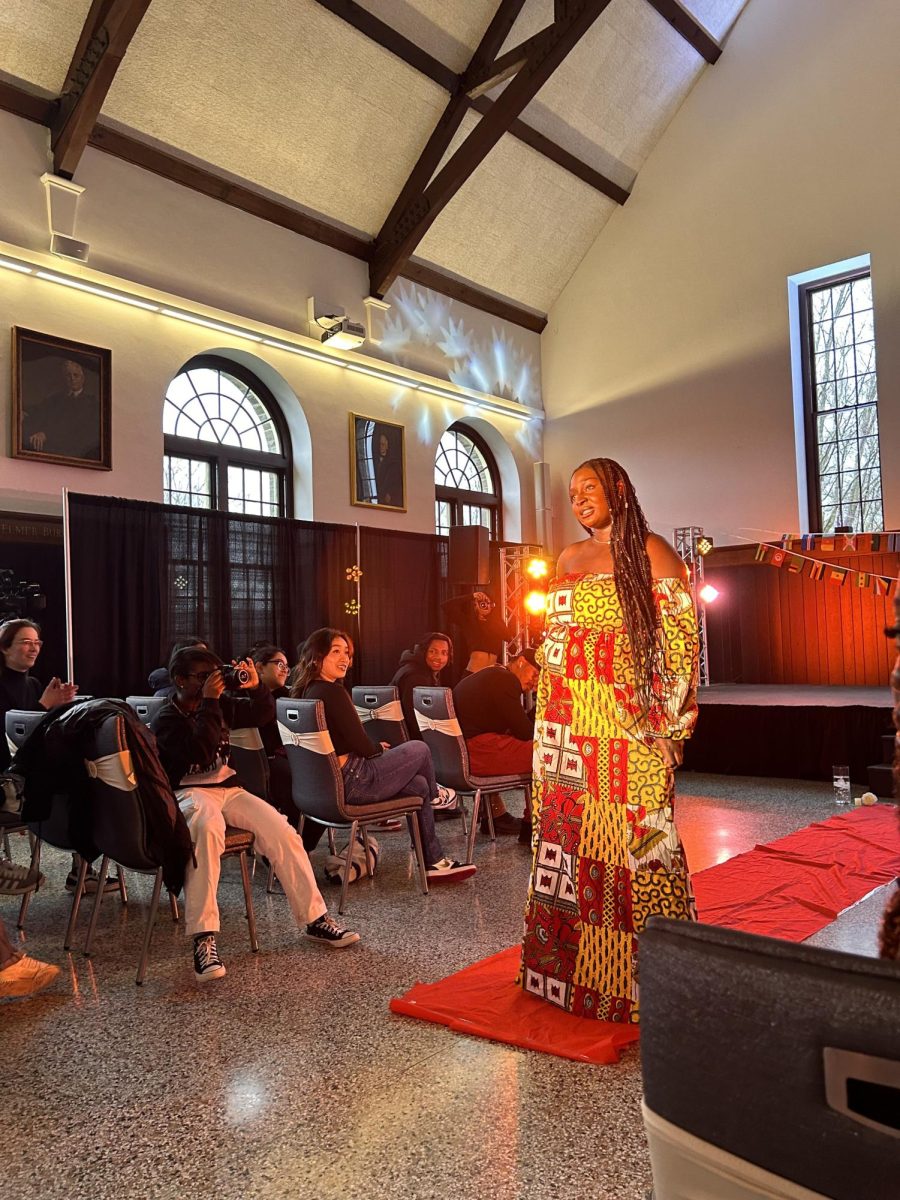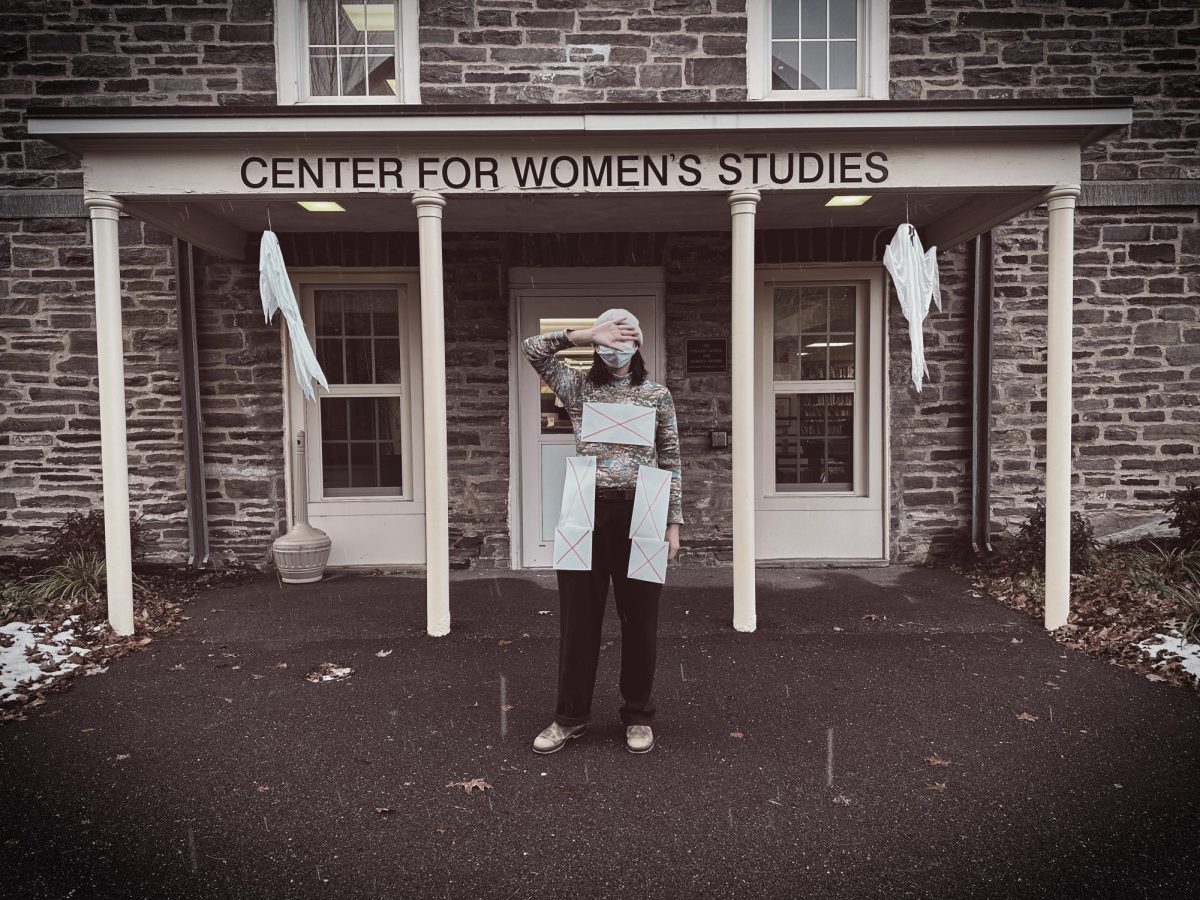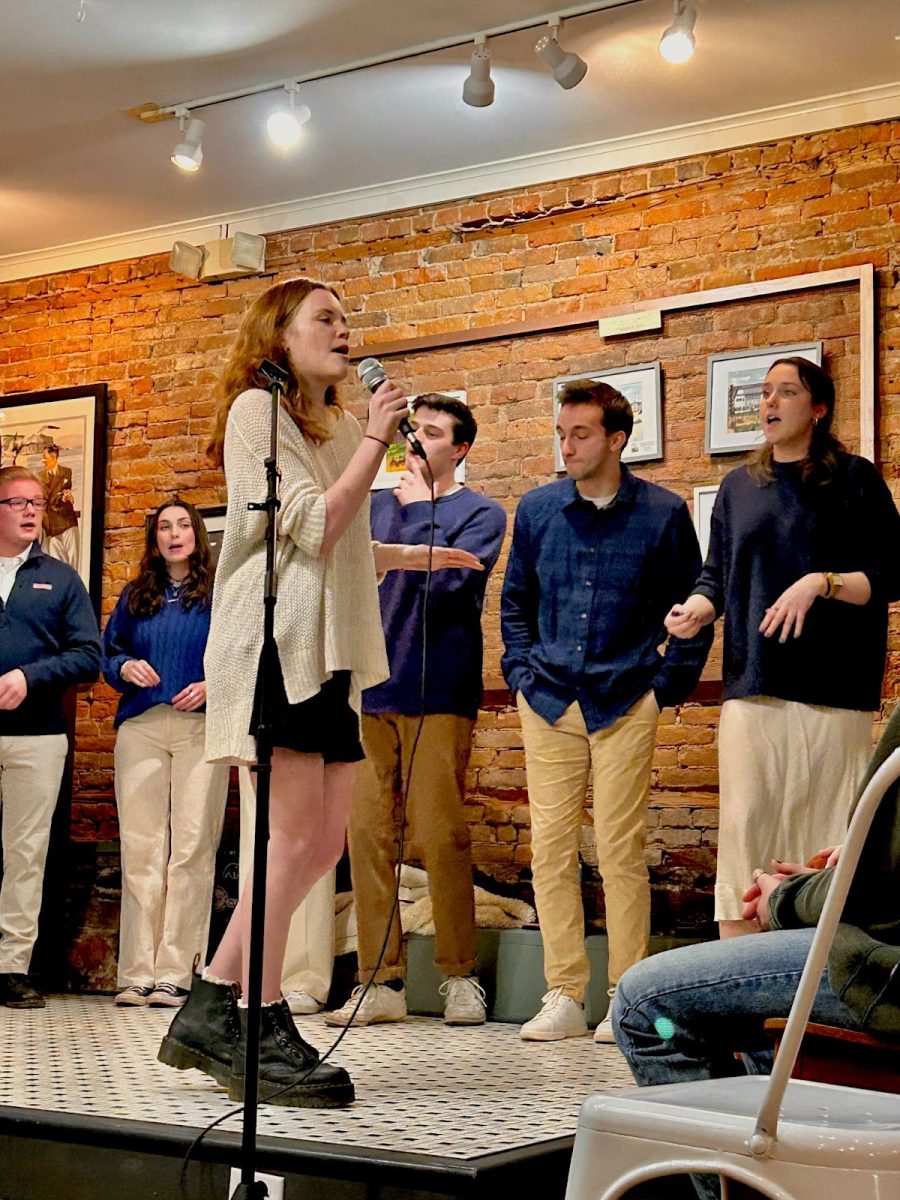In the Edge Café on the evening of Dec. 1, the audience was presented with a seemingly ordinary scene: three students doing homework together. Within these typical student environments, we often go to class and have no idea what the person next to us is thinking or has experienced. But on this stage, as each student breaks out into vulnerable, intensely real monologues, we enter an alternate reality: an ideal world where we can express all our unfiltered thoughts, experiences and identities openly. “This Is Not a Play About Sex” (TINAPAS) attempts to break societal molds, using this form to highlight the experiences at Colgate University that often go unheard or are overlooked.
TINAPAS was first written by alumna Poppy Liu ’13 and soon became a revered Colgate tradition, as students adapted the play each year to continue the legacy of its activism. The script itself is based on interviews with Colgate students on a variety of topics, including hookup culture, dating and sexual experiences. The script is also based on the experiences students have with the intersection of race, disability, gender identity, sexuality and the dominant social landscape at Colgate.
This year, senior and Director Parna Shakouri revived the play through an edited version, determined to bring TINAPAS back for critical conversations. For Shakouri, what made the adaptation process so unique was working with a living script based on past Colgate experiences. Shakouri and the play’s cast members, including first-year Amanda Ariunzaya, sophomore Reem Numan and residential fellow and alumna Janiiya Hart ’23, continually reflected on the stories of past Colgate students in relation to their own experiences when delivering their roles.
“A major part of the process was having a sustaining dialogue about the script material and how each of us relates to it personally. To convince an audience that what TINAPAS tells us matters, we have to believe that it matters,” Shakouri said. “All of those conversations and then simple moments of joy and togetherness have brought us so close, and I hope that our connection is something that the audience can feel.”
The various stories represented were relatable to many students, broaching topics like pregnancy scares and STD testing as well as underrepresented experiences, like navigating asexuality or experiencing hookup culture as a person of color. Balancing the universal nature of these stories with the individuality that comes with each person’s unique experience was another essential part of the performance.
“A challenging part was trying to narrow down a voice for each monologue,” Hart said. “I wanted to honor those who performed the piece before me and wrote the piece, while trying to stay as authentic to myself as possible.”
TINAPAS is truly about so much more than just sex. Many of the stories challenge the widespread conformity and invisibility of diverse identities on Colgate’s overwhelmingly white, heteronormative campus. While those who do not conform to the dominant culture may feel isolated, this play assures students that they are not alone in their experiences.
“It’s a play about our lives and our stories, which will always be ours to share with each other and the world. But TINAPAS is also special because it allows us to connect with those who came before us, see ourselves in their stories and feel less alone,” Shakouri said.
It is hard to encapsulate the complex range of emotions, vibrant energy and connection felt within the theater each time this play was performed. For both the cast and audience, the emotional resonance of the stories portrayed was intensely personal and enduring. Numan said that playing the role was a special type of representation in itself.
“The most rewarding part was stepping into the shoes of a character I relate to so much. It allowed me to express myself in ways I hadn’t been able to before, and I’m so grateful for this play giving me the chance to be my authentic self,” Numan said.
In the audience, senior Raquel Marquez was touched by the depth of emotions conveyed by the cast.
“The play had very delicate and sensitive stories and topics, but the performances did a great job of validating those stories and bringing to light the different experiences on campus,” Marquez said. “At the end I felt so many emotions — grief, hope and gratefulness.”

















